BIA Questionnaires
CBF 1: Asset and Facilities Management
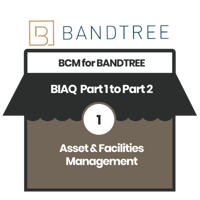
 This plays a foundational role in supporting Bandtree's mandate to maintain and enhance the infrastructure and property assets under its care.
This plays a foundational role in supporting Bandtree's mandate to maintain and enhance the infrastructure and property assets under its care.
As a government-linked company operating under Darussalam Assets, Bandtree’s responsibilities encompass a diverse portfolio of critical real estate assets that support national functions, public services, and commercial operations.
The continuity of asset and facilities services is crucial for ensuring operational stability, occupant safety, and regulatory compliance, particularly during periods of disruption.
Purpose of Chapter
This chapter outlines the key sub-processes (Sub-CBFs) within the Asset & Facilities Management function and identifies the Minimum Business Continuity Objectives (MBCOs) for each.
Definition of MBCO
The MBCO establishes the minimum acceptable level of activity that must be sustained to prevent serious consequences to the business, its stakeholders, and national operations.
By defining these priorities, Bandtree ensures that critical facilities services can continue, be restored quickly, or be adapted during adverse events to meet both regulatory and operational demands.
Corporate and Business Unit MBCO
Here is a table for CBF-1: Asset & Facilities Management for Bandtree, including the sub-processes (Sub-CBFs) and incorporating the concept of Minimum Business Continuity Objective (MBCO) at the Business Unit level, based on the BCM Institute's definitions.
Table 1-1: [BIA] [P1] Identification of Business Functions for CBF 1: Asset and Facilities Management
Corporate MBCO
|
Critical Business Functions (CBF) |
CBF Code |
Description of CBF |
Corporate Minimum Business Continuity Objective (MBCO) |
|
Asset & Facilities Management |
CBF-1 |
Ensure operational integrity, safety, and functionality of properties and assets under Bandtree’s management, including ongoing maintenance, space utilisation, and incident response. |
The minimum level of property and facility operations that must be maintained during a disruption to support critical tenants and ensure building safety and compliance. |
Table 1-2: [BIA] [P1] Identification of Business Functions for CBF 1: Asset and Facilities Management (Sub-CBF)
Business Unit MBCO
|
Critical Business Functions (CBF) |
CBF Code |
Description of CBF |
Business Unit Minimum Business Continuity Objective (MBCO) |
|
Property and Facility Maintenance Management |
1.1 |
Manage preventive and corrective maintenance to ensure building systems (e.g., HVAC, plumbing, lifts) operate effectively. |
Maintain essential maintenance for critical systems in occupied or high-risk properties to prevent health and safety hazards. |
|
Asset Lifecycle and Condition Monitoring |
1.2 |
Track physical asset conditions to ensure timely upgrades, replacements, or decommissioning. |
Continue monitoring of key building assets to prevent deterioration that could lead to failure or safety risks. |
|
Space Planning and Allocation |
1.3 |
Optimise the use of space for operational and tenant needs. |
Maintain the ability to reassign or reconfigure space to support business operations or emergency accommodation. |
|
Vendor and Contractor Management |
1.4 |
Oversee third-party service providers for maintenance, cleaning, and security. |
Ensure the availability of critical vendors to sustain core property functions and emergency services. |
|
Health, Safety, Security & Environment (HSSE) Compliance |
1.5 |
Enforce HSSE regulations to ensure safe premises for staff, tenants, and visitors. |
Maintain minimum HSSE compliance activities to mitigate legal risks and ensure safety during disruptions. |
|
Energy and Utilities Management |
1.6 |
Monitor and control energy usage and utilities (e.g., water, electricity) for cost efficiency and sustainability. |
Maintain critical utilities (power, water, fire systems) in active facilities to prevent operational disruption and ensure safety. |
|
Emergency and Incident Response for Facilities |
1.7 |
Plan and respond to facility-related emergencies, including natural disasters, fire, or structural failure. |
Maintain an operational emergency response protocol with basic staffing and communication channels. |
|
Capital Projects and Renovation Oversight |
1.8 |
Supervise the planning and execution of capital improvement projects and renovations. |
Postpone non-critical projects but maintain monitoring of active construction sites to manage risk and avoid safety violations. |
|
Tenant and Stakeholder Relationship Management |
1.9 |
Engage with tenants, regulators, and internal stakeholders to address operational concerns and ensure service levels. |
Maintain open communication with key tenants and stakeholders to manage expectations and ensure the delivery of essential services. |
|
Regulatory and Compliance Reporting |
1.10 |
Submit mandatory reports and compliance documentation to authorities. |
Ensure the timely submission of statutory reports, which are critical to legal operations and regulatory compliance. |
Summing Up ... for Part 1
The Asset & Facilities Management function is vital to ensuring that Bandtree maintains the integrity, safety, and functionality of Brunei’s strategic property assets.
Through the identification of critical sub-processes and their corresponding Minimum Business Continuity Objectives, Bandtree is better equipped to prepare for, respond to, and recover from disruptions that may impact facility operations.
This structured approach not only supports continuity of essential services and stakeholder confidence but also aligns with national priorities and compliance requirements.
As part of a broader Business Continuity Management framework, the outcomes of this chapter will inform recovery strategies, resource planning, and the overall resilience posture of Bandtree’s operations.
BIA Questionnaires
CBF 1: Asset and Facilities Management
 Asset and Facilities Management (CBF-1) is a foundational pillar of Bandtree's operations, directly supporting its core mission of delivering professional property management services across Brunei Darussalam.
Asset and Facilities Management (CBF-1) is a foundational pillar of Bandtree's operations, directly supporting its core mission of delivering professional property management services across Brunei Darussalam.
As a government-linked company operating under Darussalam Assets, Bandtree is entrusted with ensuring that critical infrastructure assets and facilities are maintained, optimally utilised, and compliant with national safety and regulatory standards.
This critical business function encompasses a wide array of sub-processes (or Sub-CBF), from routine property maintenance and vendor oversight to emergency response and capital project management.
Each sub-CBF plays a vital role in safeguarding the operational continuity, financial sustainability, and reputational standing of the organisation.
The failure or prolonged disruption of these activities can result in significant economic losses, legal non-compliance, service delivery breakdowns, and a decline in stakeholder confidence.
The following table identifies and analyses the key sub-processes under CBF-1, mapping them to relevant impact areas, financial risks, and their potential to disrupt the Minimum Business Continuity Objectives (MBCO). This structured assessment supports informed decision-making in resilience planning and prioritisation of recovery strategies.
Table 2-1: [BIA] [P2] Impact Area Of Business Functions for CBF 1: Asset and Facilities Management
| Financial Impact | ||||
|
Sub-CBF |
Sub-CBF Code |
Impact Area |
Monetary Loss (Estimated) |
Calculation of Monetary Loss (State Formula for Calculations) |
|
Property and Facility Maintenance Management |
1.1 |
Operational Disruption |
BND 50,000–200,000/month |
Cost of reactive repairs + downtime cost (area x rate x duration) |
|
Asset Lifecycle and Condition Monitoring |
1.2 |
Asset Management / Strategic |
BND 100,000/year |
Asset value depreciation x% due to lack of monitoring |
|
Space Planning and Allocation |
1.3 |
Strategic / Operational Efficiency |
BND 30,000–100,000/year |
Wasted space cost + operational inefficiency impact |
|
Vendor and Contractor Management |
1.4 |
Supply Chain / Service Continuity |
BND 20,000–150,000/event |
Contract breach penalty + service interruption losses |
|
HSSE Compliance |
1.5 |
Regulatory / Safety / Legal |
BND 100,000–500,000/incident |
Fines + legal costs + injury claim + reputational damage |
|
Energy and Utilities Management |
1.6 |
Cost Efficiency / Sustainability |
BND 10,000–50,000/month |
Excess energy usage x cost per unit |
|
Emergency and Incident Response for Facilities |
1.7 |
Crisis Response / Continuity |
BND 100,000–1,000,000/event |
Downtime cost + repair + business disruption |
|
Capital Projects and Renovation Oversight |
1.8 |
Strategic Development / Investment |
BND 250,000–5,000,000/project delay |
Project delay penalty + opportunity cost + inflation impact |
|
Tenant and Stakeholder Relationship Management |
1.9 |
Reputation / Revenue Retention |
BND 50,000–300,000/year |
Tenant churn rate x average rent lost per tenant |
|
Regulatory and Compliance Reporting |
1.10 |
Legal / Compliance / Governance |
BND 20,000–100,000/report |
Penalty per late/missing report + remediation costs |
Table 2-2: [BIA] [P2] Impact Area Of Business Functions for CBF 1: Asset and Facilities Management
|
Sub-CBF |
Sub-CBF Code |
Affect MBCO |
Impact |
Remarks – Description |
|
Property and Facility Maintenance Management |
1.1 |
Yes |
Interruptions can halt operations and impact tenant satisfaction and safety. |
Ensures regular maintenance to reduce the risk of equipment failure or facility closure. |
|
Asset Lifecycle and Condition Monitoring |
1.2 |
Yes |
Affects long-term asset value and planning for replacements/upgrades. |
Tracks asset performance and plans for lifecycle replacement or disposal. |
|
Space Planning and Allocation |
1.3 |
Partial |
Can lead to inefficient space use, affecting staff productivity and service delivery. |
Optimises the utilisation of leased and owned spaces. |
|
Vendor and Contractor Management |
1.4 |
Yes |
Vendor failure can delay projects or halt maintenance services. |
Manages procurement and performance of outsourced services. |
|
HSSE Compliance |
1.5 |
Yes |
Non-compliance can result in legal action, injury, and public scrutiny. |
Ensures workplace safety and environmental standards. |
|
Energy and Utilities Management |
1.6 |
Partial |
Overruns lead to higher costs and a breach of sustainability KPIs. |
Monitors utility consumption and implements measures to increase efficiency. |
|
Emergency and Incident Response for Facilities |
1.7 |
Yes |
A delayed response may escalate risks, lead to loss of life, and cause property damage. |
Provides readiness for fires, floods, and other facility emergencies. |
|
Capital Projects and Renovation Oversight |
1.8 |
Yes |
Impacts future capacity and revenue-generating assets. |
Oversees the execution of major construction and upgrade projects. |
|
Tenant and Stakeholder Relationship Management |
1.9 |
Yes |
Poor management reduces occupancy, trust, and renewal rates. |
Handles tenant satisfaction, grievance resolution, and service communication. |
|
Regulatory and Compliance Reporting |
1.10 |
Yes |
Affects legal standing and license to operate. |
Ensures timely reporting to regulatory authorities per national standards. |
Summing Up ... for Part 2
CBF-1: Asset & Facilities Management is integral not only to the day-to-day functioning of Bandtree Sdn Bhd but also to its long-term strategic viability.
The analysis of its sub-processes highlights the interdependencies between facility operations, tenant satisfaction, regulatory compliance, and financial stewardship.
Disruptions within these domains carry measurable financial risks and operational consequences that may compromise the company’s ability to meet its minimum business continuity objectives (MBCO).
By systematically identifying the impact areas and associated risks for each sub-function, Bandtree enhances its preparedness to mitigate disruptions, ensure regulatory alignment, and maintain service excellence.
This comprehensive evaluation forms a critical foundation for developing targeted business continuity and recovery strategies, thereby strengthening the company’s overall resilience and ability to fulfil its national mandate.





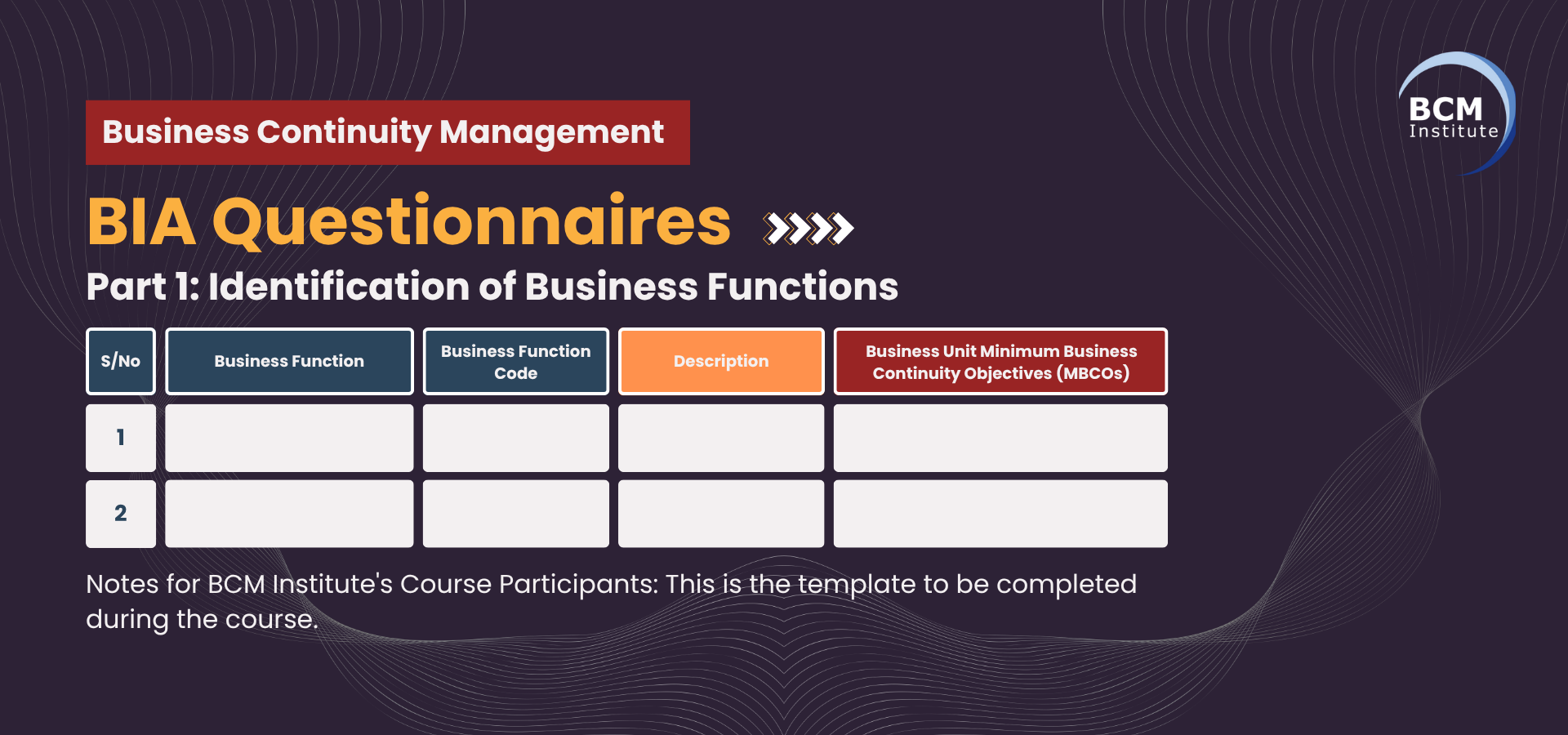
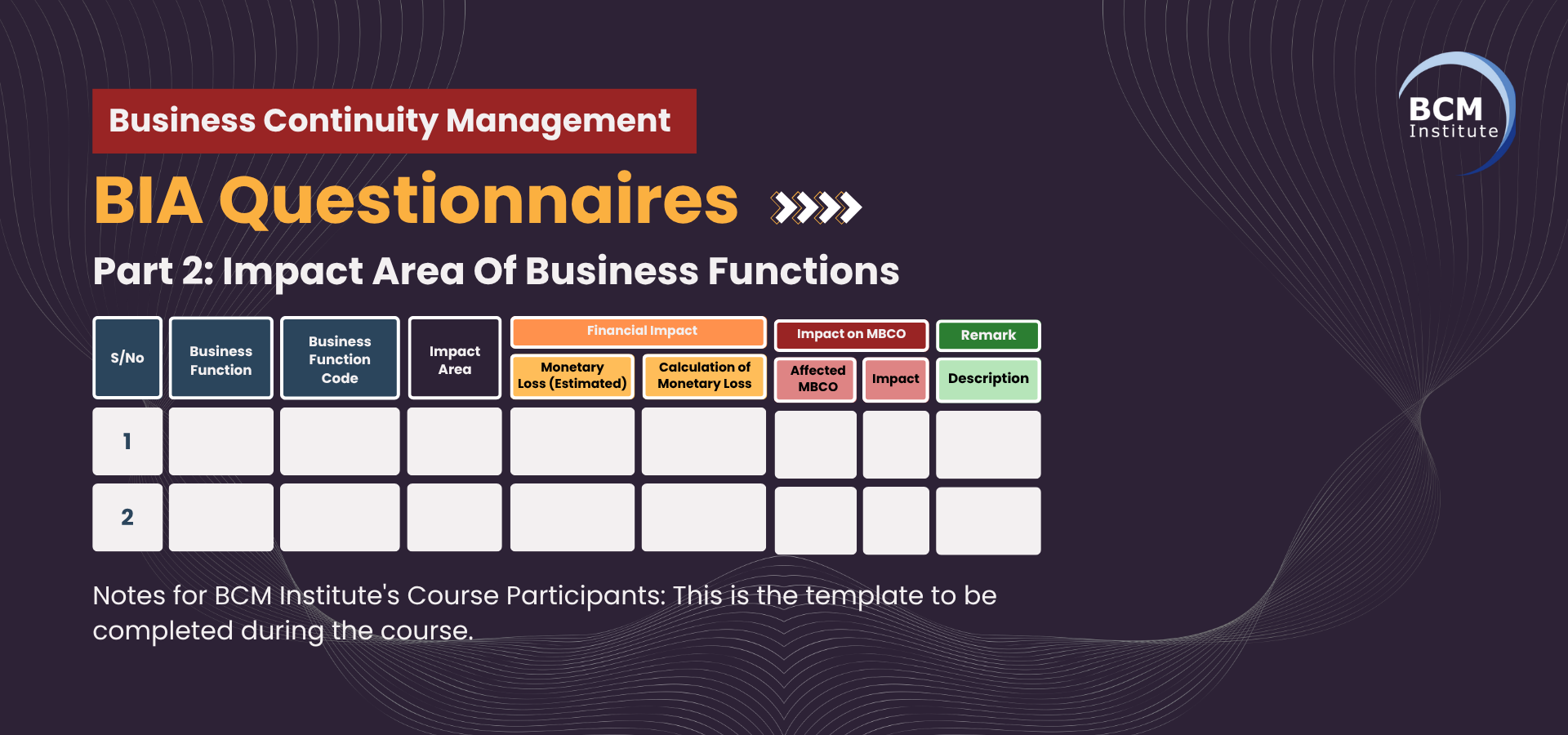

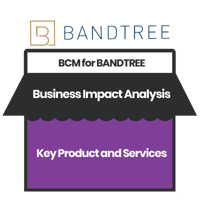
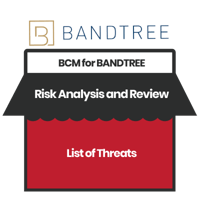
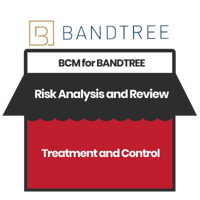
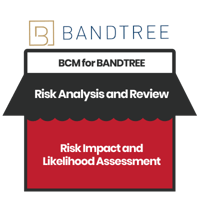
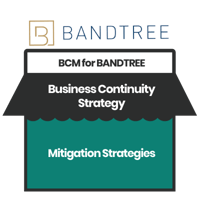
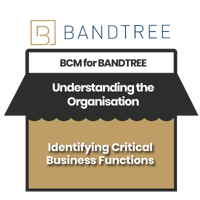
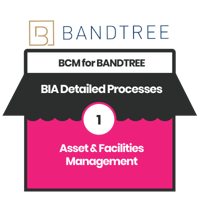
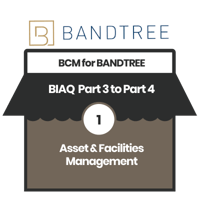
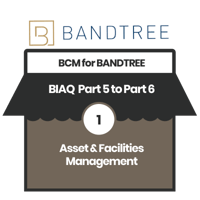
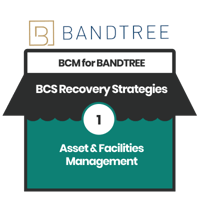
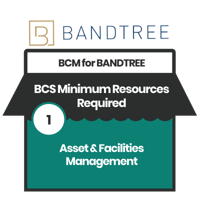
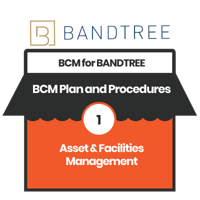


![Register [BL-B-3]*](https://no-cache.hubspot.com/cta/default/3893111/ac6cf073-4cdd-4541-91ed-889f731d5076.png)





![FAQ [BL-B-3]](https://no-cache.hubspot.com/cta/default/3893111/b3824ba1-7aa1-4eb6-bef8-94f57121c5ae.png)
![Email to Sales Team [BCM Institute]](https://no-cache.hubspot.com/cta/default/3893111/3c53daeb-2836-4843-b0e0-645baee2ab9e.png)





